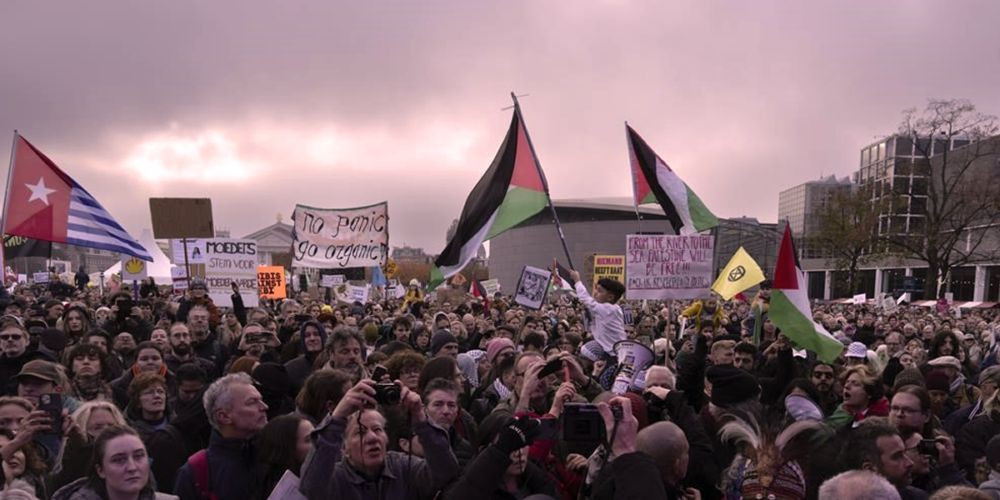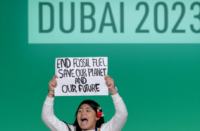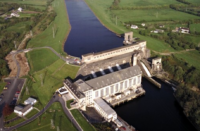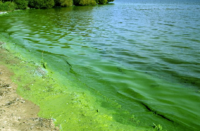Last month, I watched a crowd gather in Amsterdam for a rally in support of climate justice. With 70,000 people in attendance it was the largest of its kind in the country. Although it started peacefully, the pleasant atmosphere turned into one of conflict when Peace Prize winner Sahar Shirzad handed the microphone to Sarah, a woman from Palestine. The moment she spoke of Palestinian liberation, her microphone was cut off and passed to guest of honour Greta Thunberg. Greta was not having it and scolded the naysayers: “As a movement for climate justice, we have to listen to the oppressed” before handing the microphone back to Sarah. A local politician climbed the stage to wrestle the microphone away, claiming he was “here for climate, not politics”.[1]
The knowledge that the richest 1% account for as much of the carbon emissions as the poorest 66% on the planet[2] displays the clear injustice of the encroaching climate crisis. Especially when one considers that the poorest people who have done little to cause the turmoil are hit hardest, while the rich are able to escape the worst effects of it with their wealth gained through the ruthless exploitation of the former.
So how does this connect to Palestine? Looking at the distribution of resources under Israeli occupation reminds me of former United Nations Secretary Boutros Ghali who already back in 1985 remarked that the Middle East will inevitably see wars over water. Under British occupation, villages in Palestine each had their own wells for communal use. Villagers pooled their resources to drill for water and distribute it amongst each other.
This radically changed when Israel occupied the west bank in 1967. As the Israeli military took control of the water supply, new wells could only be dug with their express permission which was near impossible to get. This occupation extends to the collection of rainwater in cisterns which are deemed illegal and regularly destroyed by the Israeli occupying force. To add insult to injury Israel is now taking 80% of available water in the Jordan valley, leaving many remaining Palestinian wells on the West Bank dry or insufficient.[3]
The situation in the Gaza strip is worse. Originally the Gaza strip obtained water from groundwater that flows from inland to the Mediterranean. This aquifer has however run dry as Israel built several pumping stations along its border, preventing any water from reaching the Gaza strip. With the absence of fresh water, salt water from the Mediterranean streams in with long lasting effects for nature and the people.
It is no surprise then that a vast inequality in access to water exists between Israelis and Palestinians. Average Palestinian consumption is about 70 litres a day per person: well below the 100 litres per capita daily recommended by the World Health Organisation. Israeli daily per capita consumption is with 300 litres about four times as much. In some rural communities Palestinians survive on far less, sometimes barely 20 litres per day: the minimum amount recommended by the WHO for emergency situations.
Where Israeli settlers have lush gardens and swimming pools, Palestinians barely get by. In effect many Palestinians are forced to buy their own water back from Israel for a high price, with the working class paying a significant part of their monthly income for what is their human right.
As the climate changes, rainfall in the region is projected to decrease by over 10% while runoff of the Jordan river will decrease even more with 22%.[4] As long as the Israeli occupation of Palestine endures, this injustice will only increase.
To fight climate change is inherently political. We cannot fight for a better future without recognising the structural injustice that is done to the global south. As Greta said in Amsterdam: ”we have to listen to the oppressed”.
[1] https://www.volkskrant.nl/nieuws-achtergrond/greta-thunberg-geeft-woord-aan-pro-palestinaspreker-bij-klimaatmars-amsterdam~b4894d92/
[2]https://www.theguardian.com/environment/2023/nov/20/richest-1-account-for-more-carbon-emissions-than-poorest-66-report-says
[3]https://www.amnesty.org/en/documents/mde15/027/2009/en/
[4]https://www.gov.il/en/departments/guides/climate_trends_and_impact_in_israel






